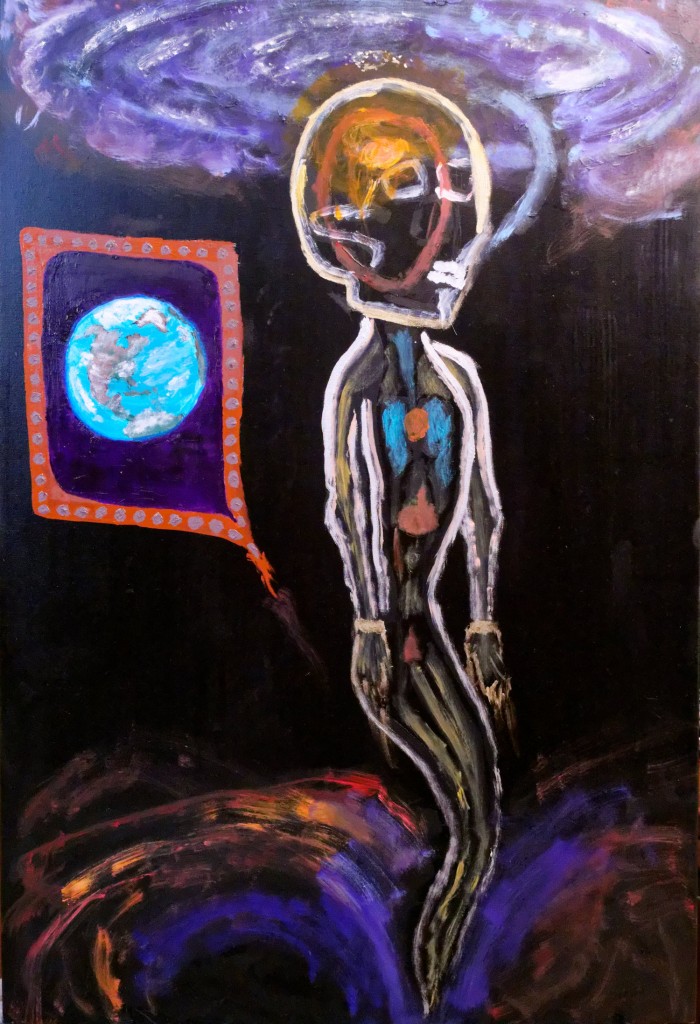In 2013, I joined “Forecasting World Events”, an intelligence crowdsourcing project of the U.S. intelligence community. FWE ran for just one year, killed off by budget sequestration, and perhaps the conclusion of the sponsors that the depths of the concept had been adequately plumbed. I began with anticipation of a harmless game, which transitioned to a deeply introspective journey of self-examination, as I attempted to systematize the thought-process of prediction. I learned some things. Scroll past Spaceman. who, as ever, balances his existence between the cosmic consciousness and a black hole.
(click to enlarge)
One of the sins of the media is to promote reportage based on the claims of “experts”, viz. “Expert says crisis looms in __________”, “Expert solution to the problem of _____________”, or “Expert says we must do this to avoid that.” And, of course, “Famous gut doctor begs you to stop eating chocolate mousse or tiramisu, do this immediately, it’s genius.” Like hell I will! This headline hyperbole is not harmless.
Expertise exists. There really are expert surgeons, oncologists, epidemiologists, climatologists, environmentalists, plumbers, chefs, builders, planners, tinkers, tailors, soldiers, and spies. Despite the criticisms of Bird Flu, Part 2, public health remains, at least for a few more weeks, in the hands of genuine experts.
When applied to the larger problems of the world, which include government, political science, foreign policy, criminology, and the general unsuitability of man for the environment of the Anthropocene, expertise is a false god. All of these fall under the rubric of social sciences.
Actual experts exist, but so rarely, we discount their existence in favor of criteria other than ability. Pseudo-experts compete frantically for validation on a media stage incapable of discrimination. The nonexistence of recognized expertise in the above categories follows from several arguments.
If you randomly select “experts” with disregard for their political bias, the ensemble of their opinions will cancel out. To choose, you have to be the meta-expert. How do you choose between them? By how many books they have written? By how well they speak? By what you would like to believe anyway? How do you feel about experts in tee-shirts and Bermuda shorts?
Provided an “expert” comports attractively, the mantle of expertise is often conveyed by the media according to rare, unrepeated success, such as timing the last recession. Post the Korean War, the U.S. had every conceivable economic advantage, now squandered. If “experts” had acquired reputations based on true expertise, would our economic history have been such a chronicle of lurching horrors? Surely, expertise, if it widely existed, would have mitigated this.
The defense, which runs along the lines of “If you had only followed my advice…” is negated by the expertise marketplace, where you can shop for any opinion you want. You have to think you’re smart enough to smoke out the real experts. History says you’re not.
The “experts” are legitimate subject matter specialists, which dispenses with the implied assumption they can actually solve problems. A minority of them may have special, valuable insight, but they cannot be distinguished from the run-of-the-mill noisemaker who has written seven books. We choose expertise based on what we want to believe. We use this biased choice of “experts” to validate governance. Pseudo-experts occupy a nether-space that lubricates the propagation of policy, by numbers and reputation frequently acquired by circular reference.
Since we choose experts according to what we want to believe, another unpleasant corollary, my own Occam’s Razor, raises its ugly head: The more universally something is believed, the less likely it is to be true. Since time immemorial, this has been the source of narcissistic national mythology — and war.
Histories of mankind have various perspectives: politics, culture, technology, and conflict. But one slant of human history is so concisely describable, and so negative, it has been neglected by historians as the driver of so much: “Destruction of life and wealth in the service of mythology.” It was addressed tangentially by Vilfredo Pareto. The current exemplar is the bloody dream of Russian nationalists, promoted by Russian “experts”. We could hope this carnage will deter others, at least for the memory of a generation or two. But, as the saying goes, history marches on.
So we have a prediction for the new year. History will continue. There will be bright spots and sieges. Bloody world leaders will continue slaughter in the service of their misbegotten dreams. They won’t be reasonable with us. We can’t be reasonable with them.
Now, because I am an expert, I am going to tell you how I’m going to deal with this evening. I have a whole chocolate mousse pie in the fridge. I’m thin anyway, so I’m going to nibble at it. If it streams, I might watch some of Anderson Cooper as he plays straight man to Andy Cohen. Or I might sleep through the ball drop.
Some of the jollity might be forced, drowning sorrows with merriment. We might wish there were some way to stop the ball from dropping, so we could live in the sunshine of the eternal present.
But, as they say, history marches on.
(Portrait of a Spaceman. 36×24″, oil on canvas.)
